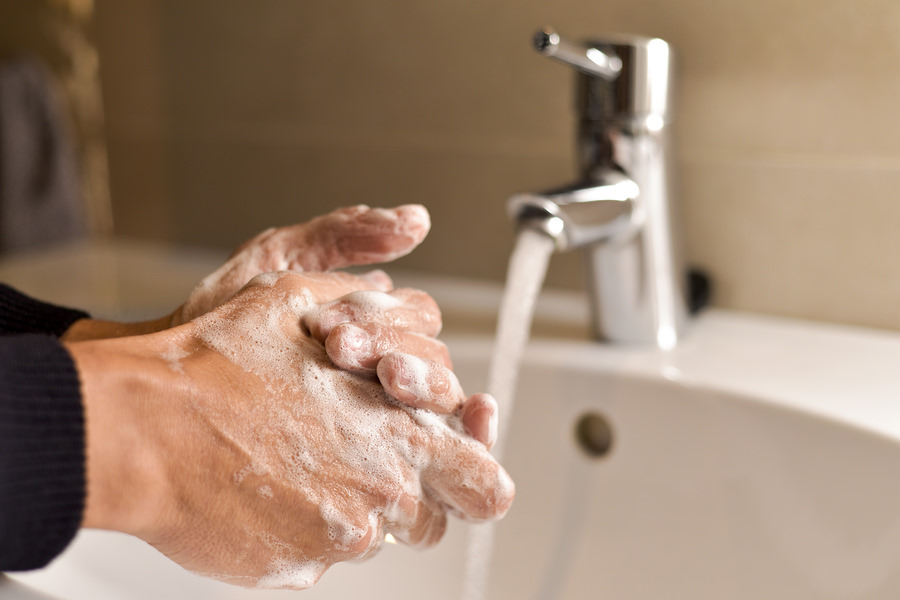Ordinary water is not effective in removing dirt and stains from clothes, skin, and other surfaces because these stains are often made of oil or grease. As we all know, oil and water don’t mix. Soap is the most commonly used agent for cleaning and is more effective in removing dirt, but it doesn’t work well with hard water.
Before we discuss why hard water doesn’t get along with soap, we need to discuss first how soap is made and how it works as a cleaning agent. Soap is the byproduct of a chemical reaction between fats and alkali. The process is also known as saponification. The fats used can be plant-based or animal-based.
Alkalis are soluble salt from metal alkali and the most commonly used type for soap making is Sodium hydroxide (NaOH) and Potassium hydroxide (KOH). Mixing sodium chloride with fat produces “sodium soap” or hard soap – the ones in bar form often used in bathing. If the alkali used in saponification is potassium hydroxide, it produces soft soap like the ones in liquid detergent and facial wash.
Cleaning Capacity of Soap
Each soap molecule is composed of two ends: the carboxylate and the hydrocarbon end. The carboxylate end is hydrophilic in nature, which means it is attracted to water molecules while the hydrocarbon end is attracted to oil, and since it is hydrophobic in nature, it repels water.
While washing with soap and water, the hydrophilic ends of soap molecules stick out into the water and the hydrophobic ends attach to oil. Soap molecules break down oil into smaller drops so they can be suspended in water. Soap works by pulling dirt and grease from your body into the water. Drops of oil are removed when you rinse with water.
Water Hardness Affects Soap’s Cleaning Action
Based on how effective it works with soap in cleaning, water is classified into two types: soft and hard.
- Hard water reduces the cleaning capacity of soap. Soap lathers readily with soft water. Rainwater is naturally soft. In contrast, hard water does not produce a good lather, so it is more difficult to wash with soap in hard water. It is also not recommended for bathing, laundry, and laboratory purposes. The minerals in hard water react with soap and affect its cleaning capacity. It’s still possible to use hard water when washing by using more soap. The additional soap will no longer be affected by the minerals in the water, so they can clean just as effectively, but you’ll be wasting more soap this way. Water gets hard as it passes through rocks and soil absorbing minerals from the environment or from man-made pollutants.
- Hard water and soap produce a curdy precipitate called soap scum. Hard water has a high concentration of dissolved minerals like calcium ions and magnesium ions in the form of dissolved salts. Soap contains sodium salt from stearic acid. In soft water, this sodium dissolves easily, but in hard water, it binds to the minerals and produces insoluble calcium or magnesium stearate, also known as soap scum. Soapless detergents are made from propene and do not produce soap scum.
The nuisance of soap scum
- It can damage fabrics, makes clothes dingy and scratchy.
- It stains bathtubs and toilet bowls
- It can damage plumbing fixtures, including faucets, drains, and shower heads.
- It produces build-up in your hair, so your hair looks dull and rough.
- Soap and hard water can leave a film on your skin that can cause irritation and prevent proper removal of bacteria

